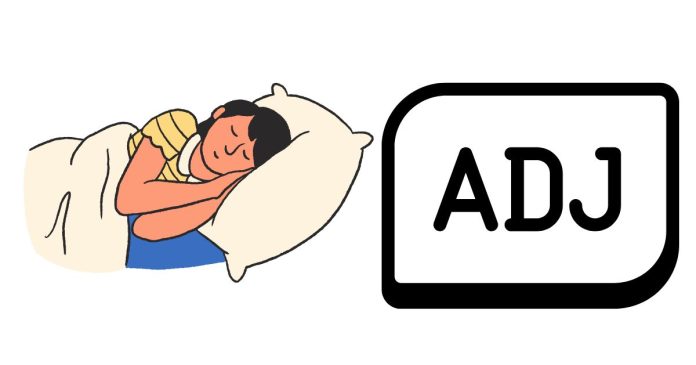Is Sleeping an Adjective?
When it comes to understanding parts of speech, things can sometimes get a little tricky, especially with words that have multiple uses. One word that often sparks questions is “sleeping.” You might hear it in phrases like “a sleeping cat” or “the sleeping baby,” but does this mean “sleeping” is an adjective? Let’s break it down.
What is an Adjective?
First, let’s quickly recall what an adjective is. An adjective is a word that describes or modifies a noun, giving more information about it. For example:
- Happy in “a happy dog” is an adjective because it describes the dog.
- Tall in “a tall building” is an adjective because it describes the building.
The Role of “Sleeping”
Now, when we look at the word “sleeping,” we see that it appears in phrases like:
- “A sleeping child”
- “The sleeping dog”
In these cases, “sleeping” is indeed describing a noun (child, dog), so it seems to function like an adjective. But here’s the catch: sleeping isn’t strictly an adjective—it’s actually a present participle.
What’s a Present Participle?
A present participle is a form of a verb that ends in -ing (like “sleeping,” “running,” or “eating”) and is often used to create continuous verb tenses or to function as part of a noun phrase. While participles can look like adjectives, they are actually derived from verbs.
For example:
- “The dog is sleeping.” (Here, “sleeping” is a verb, showing an action.)
- “A sleeping dog.” (Here, “sleeping” is used as part of a noun phrase, acting as an adjective.)
So, when we say “the sleeping baby,” we’re using sleeping as a participial adjective (a participle that functions like an adjective). It’s describing the noun baby, but it’s technically still a verb form.
Conclusion: Is “Sleeping” an Adjective?
In short, sleeping can act like an adjective, but it’s technically a present participle that functions as a descriptive word. When used in sentences like “a sleeping cat,” it behaves as an adjective, but it still retains its roots as a verb form.
So, while we may casually think of sleeping as an adjective in everyday language, grammatically, it’s a participle that functions like an adjective in certain contexts. Isn’t language fun?


